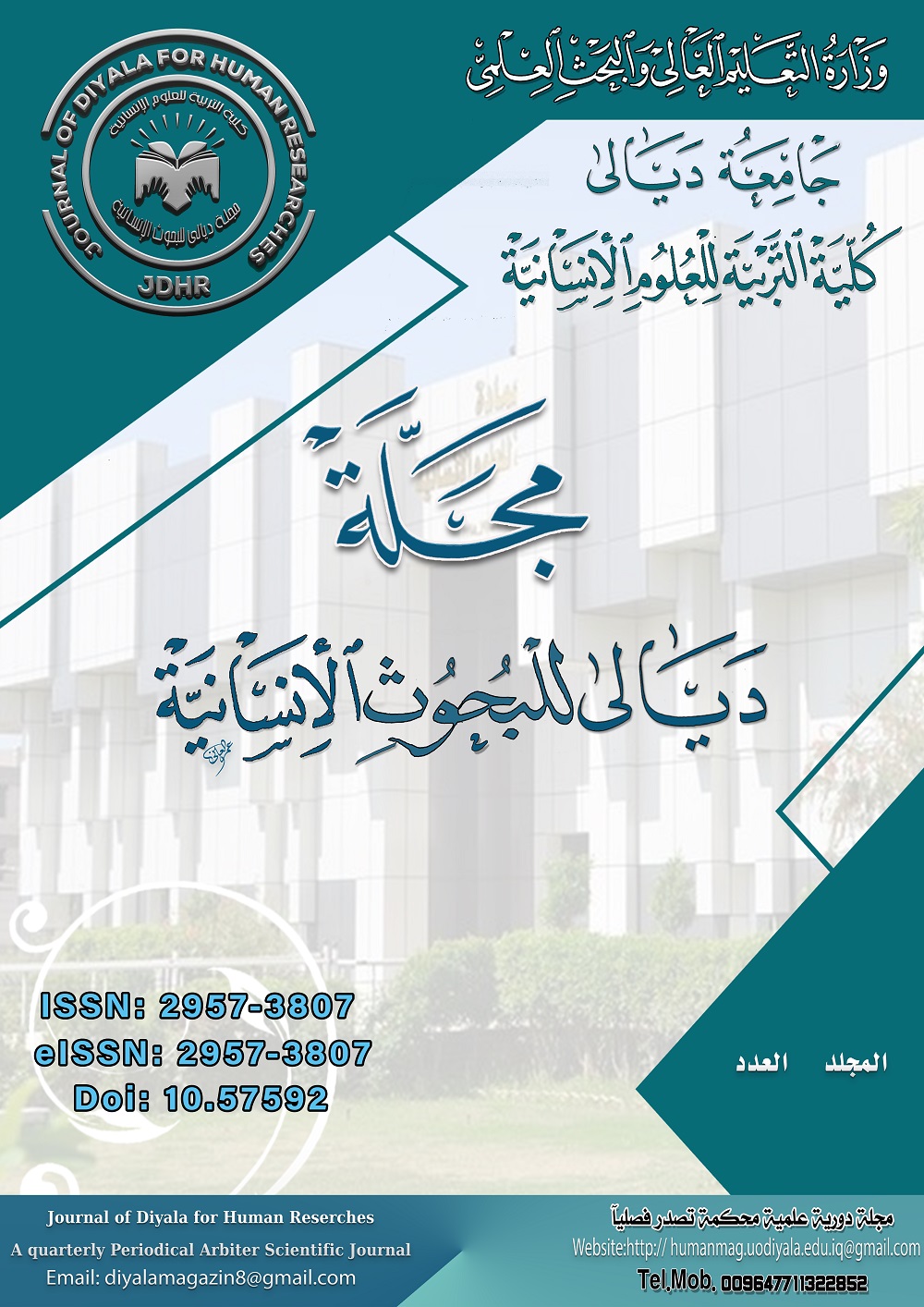الاعداد ودلالتها التاريخية من خلال القران الكريم
DOI:
https://doi.org/10.57592/8dpx8e54Abstract
Downloads
Published
2025-10-01
Issue
Section
بحـــــــوث العــــــدد
License
Copyright (c) 2025 م.د سمر اكرم عبد الرحمن عبد الربيعي

This work is licensed under a Creative Commons Attribution-NonCommercial 4.0 International License.

